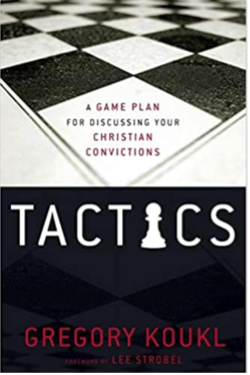
Methodology of Apologetics
Introduction
The purpose of this section on Apologetics is to help the believer learn how to help non-believers and even confused believers to better understand the truth about Jesus Christ and Christianity.
In this section we will cover what apologetics is and is not. The purpose of it and what mindset we should have when doing it. Then we will get into the methodology of the proper way to go about discussing controversial and sensitive, maybe even politically incorrect topics with others in a way that reflects the values and characteristics of our Lord.
Methodology of Apologetics
The methodology centers around questioning the other person in such a way as to learn their true position and then question that position to expose their flaws. Next, we will look at different types of arguments and how to combat them.
In the subsequent sections, we will outline the typical arguments you will most commonly hear and how to combat them.
What is Apologetics?
Christian apologetics is both the science and art of answering the question “Why should anyone believe in Jesus?” by using reasons and evidence. It is in 1 Peter 3:15 where the apostle Peter tells us, “But even if you should suffer for righteousness’ sake, you will be blessed. Have no fear of them nor be troubled, but in your hearts honor Christ the Lord as holy, always being prepared to make a defense (apologia) to anyone who asks you for a reason for the hope that is within you: yet do it with gentleness and respect” (ESV).
Peter spells it out for us. The Greek word used here is “apologia”, which is where we get our English word “apologetics”. It means to make a defense. It does not mean to apologize!
The Goal of Apologetics
In Peter’s statement on apologetics, he tells us to do so with “gentleness and kindness”. The intent is not to win an argument. It is to win the person to Christ! We want to help the other person understand the truth about Christ and eventually accept that truth.
To do this, we want to get the other person to understand the flaw(s) in their argument(s). Then we want them to consider alternatives that are based on the truth. Most people will not consider those alternatives if they believe their position to be correct. We have to show them how their arguments have faulty assumptions or inaccurate data backing them up. Sometimes, you will find there is nothing backing them up!
There are opportunities are all around us all the time to ask questions of people to determine where they are at spiritually. We only have about a 10-second window to open a conversation and get it going in the right direction. Asking questions is the best way to get a conversation started.
Recommended Reading
There are a number of books available to help you with your understanding of apologetics. LearningGod.org recommends you start with a book on the approach to apologetics first. The material in the section on methodology is primarily derived from Gregory Koukl’s book called “Tactics”.
In Tactics, Gregory Koukl demonstrates how to artfully regain control of conversations, keeping them moving forward in constructive ways through thoughtful diplomacy. You’ll learn how to maneuver comfortably and graciously through the minefields of a challenging discussion, how to stop challengers in their tracks, and how to turn the tables on question or provocative statement. Most importantly, you’ll learn how to get people thinking about Jesus.
Drawing on extensive experience defending Christianity in the public square, Koukl shows you how to:
- Initiate conversations effortlessly
- Present the truth clearly, cleverly, and persuasively
- Graciously and effectively expose faulty thinking
- Skillfully manage the details of dialogue
- Maintain an engaging, disarming style even under attack
Tactics provides the game plan for communicating the compelling truth about Christianity with confidence and grace.

